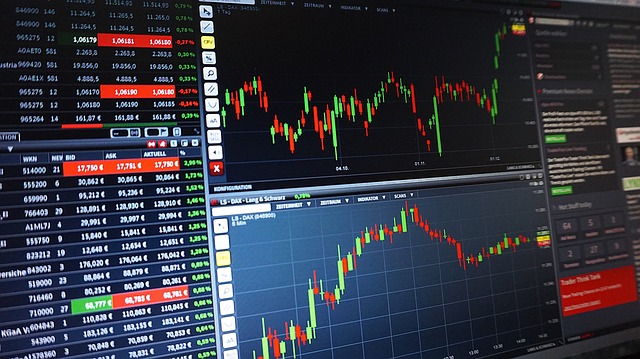Customs and Trade Documents UK translation services play a vital role in ensuring the accuracy and compliance of international trade transactions. These specialized services offer precise translations by expert linguists well-versed in both language nuances and legal terminology relevant to UK customs. Their work is indispensable for businesses engaging with the UK market, as it prevents costly delays, financial penalties, or trade barriers by correctly conveying all transactional details. Engaging with such services is a strategic imperative for maintaining compliance, mitigating risks, and expediting clearance within the UK's customs framework. With the integration of advanced translation technologies like neural machine algorithms, these services have become even more efficient, providing high-quality translations that keep pace with changing terminology and regulations. This tech-driven precision is critical for businesses to effectively execute cross-border trade activities while adhering to international laws and domestic regulations. The case studies provided illustrate the tangible benefits of utilizing professional UK translation services, such as reduced delays, avoided fines, and established reliability with customs authorities, thus underscoring their essential role in the international trade sector.
Navigating the complexities of international trade necessitates a meticulous approach, particularly in the UK where customs document translations play a pivotal role. This article dissects the critical nature of precise translations for UK customs and trade documents, offering insights into the necessary documentation, professional translation services’ indispensable role, and the legal frameworks governing translations. We explore best practices for choosing translation providers, emphasizing linguistic accuracy as a cornerstone of successful trade. Additionally, we delve into technological advancements streamlining document translation and customs procedures, and examine case studies that underscore their impact. Furthermore, we provide a forward-looking analysis on future trends in UK customs and trade document translation services to ensure businesses remain compliant and competitive in the global marketplace.
- Understanding the Necessity of Precise Customs Document Translations in the UK
- Overview of UK Customs and Trade Documentation Requirements
- The Role of Professional Translation Services for Customs Documents
- Common Types of Documents Required for UK Customs Clearance
- Navigating Legal and Regulatory Frameworks for UK Customs Translations
- Best Practices for Selecting a Reliable Translation Service Provider
- The Importance of Linguistic Accuracy in Trade Documentation
- Technological Advances in Document Translation and Customs Procedures
- Case Studies: Successful UK Customs Translations and Their Impact
- Future Trends in UK Customs and Trade Document Translation Services
Understanding the Necessity of Precise Customs Document Translations in the UK

In the complex arena of international trade, precision in documentation is paramount. The United Kingdom, with its intricate network of trade relationships, demands meticulous customs document translations to facilitate seamless transactions across borders. Customs and Trade Documents UK translation services play a critical role in this context, ensuring that all necessary paperwork is accurately translated from one language to another. This is not just a matter of semantics; it involves the precise conveyance of legal terms, trade regulations, and transactional details that are subject to strict compliance and scrutiny. A minor translation error can lead to significant delays, additional costs, or even the rejection of goods at the point of entry. Consequently, businesses dealing with the UK market must engage with professional translation services specializing in customs and trade documents to avoid such pitfalls. These services employ expert linguists who are not only adept at language nuances but also well-versed in the legal jargon and procedural requirements specific to UK customs. This expertise is crucial for maintaining compliance, minimizing disruptions, and expediting the clearance process, thereby upholding the integrity of international trade operations within the UK.
Overview of UK Customs and Trade Documentation Requirements

In the context of international trade, the United Kingdom has established stringent customs and trade documentation requirements to facilitate the efficient movement of goods while ensuring compliance with regulatory standards. These documents serve as critical communication tools between importers and exporters, customs authorities, and other stakeholders in the supply chain. They include a range of paperwork such as commercial invoices, packing lists, bill of lading or air waybills, and certificates of origin. To navigate these requirements effectively, UK translation services play an indispensable role. Specialized translators fluent in both the source and target languages are necessary to accurately convert these documents, ensuring that all details are precisely conveyed without ambiguity. This precision is paramount as any discrepancies can lead to delays, additional inspections, or even penalties. Therefore, businesses engaged in cross-border trade must leverage reliable UK translation services to ensure timely and accurate translations of their customs and trade documents, thereby avoiding potential disruptions and maintaining the integrity of their supply chains.
The Role of Professional Translation Services for Customs Documents

Common Types of Documents Required for UK Customs Clearance

Navigating Legal and Regulatory Frameworks for UK Customs Translations

Best Practices for Selecting a Reliable Translation Service Provider

When engaging with customs and trade documents UK translation services, selecting a reliable service provider is paramount for businesses to navigate the complexities of international trade smoothly. The precision and accuracy of translations in this domain are not just a matter of semantics but can significantly impact the clearance process, compliance, and potential legal implications. A trustworthy translation service should possess specialized expertise in legal and regulatory terminology specific to UK customs. This specialized knowledge ensures that all nuances and particularities of the original document are accurately conveyed in the target language, which is crucial for the acceptance and processing of customs and trade documents.
Moreover, a reliable provider will offer certification and notarization services for translated documents if required by UK customs. This adds an official stamp to the translations, confirming their authenticity and reliability. Additionally, such providers often have a robust quality assurance process in place, which includes the use of professional human translators with industry-specific experience, coupled with advanced translation technologies. This dual approach minimizes errors and ensures that the translations comply with both linguistic and regulatory standards. It is advisable to review a provider’s track record, client testimonials, and any relevant certifications before making a commitment to ensure the highest quality of service and compliance with UK customs regulations.
The Importance of Linguistic Accuracy in Trade Documentation

When engaging in international trade, particularly within the United Kingdom’s borders, the precision and clarity of customs and trade documents are paramount. The UK’s status as a global trading hub necessitates seamless communication across languages and cultures. Linguistic accuracy in these transactions is not just a courtesy but a legal requirement that ensures compliance with both international regulations and domestic law. Any discrepancy or miscommunication due to language barriers can lead to costly delays, legal complications, and financial losses. Therefore, it is crucial for businesses to leverage the expertise of UK translation services specializing in customs and trade documents. These services offer not only a translation but a cultural adaptation of documents, which is essential for accurate interpretation and acceptance by regulatory bodies. By employing these professional UK translation services, businesses can navigate the complexities of international trade with confidence, ensuring that their goods clear customs without incident and that all parties involved have a clear and precise understanding of the terms and conditions outlined in the documentation. This meticulous approach to document translation is an investment in the efficiency and success of cross-border trade operations.
Technological Advances in Document Translation and Customs Procedures

The realm of customs and trade documentation has seen significant advancements with the advent of sophisticated translation technologies. In the UK, the translation of customs and trade documents is no longer a manual endeavour but a seamless process facilitated by cutting-edge language technology. These advanced systems employ neural machine translation algorithms, which are capable of delivering high-quality translations that match the nuance and context of the original text. This ensures that all import and export paperwork adheres to the stringent standards required by UK customs. The integration of these technologies has streamlined the process, reducing the time it takes for documents to be translated and making the flow of international trade smoother and more efficient. Furthermore, these systems are continuously updated with the latest linguistic models to accommodate the evolving terminology and regulations within the customs sector, ensuring that translations remain both timely and accurate.
The UK translation services that specialise in customs and trade documents are at the forefront of this technological revolution. They leverage artificial intelligence and machine learning to provide real-time translations that are not only linguistically correct but also contextually appropriate for customs procedures. This level of precision is crucial for avoiding delays and ensuring compliance with legal requirements. The sophisticated software used by these services can handle a wide array of document types, from commercial invoices to packing lists, all while maintaining a high degree of accuracy. Additionally, these services often offer human oversight, blending the efficiency of automation with the expertise of professional translators, which is particularly beneficial for complex or ambiguous documents that require a deeper understanding of both language and trade regulations.
Case Studies: Successful UK Customs Translations and Their Impact

UK businesses operating in the international arena often rely on seamless customs and trade document translations to navigate the complexities of cross-border commerce. A case in point is the success story of a mid-sized electronics manufacturer who, by leveraging professional UK customs translation services, expedited their import process, thereby reducing delays and avoiding costly fines. The company faced challenges with accurately conveying technical specifications and compliance details in non-English documents. By opting for specialized translators familiar with the nuances of both the electronics industry and UK customs regulations, they managed to clear their goods swiftly upon arrival, enhancing supply chain efficiency and customer satisfaction.
Another example is a specialist importer of luxury goods who, through precise translation of their trade documents by UK translation services, successfully mitigated the risk of miscommunication with UK customs authorities. The high-value items they handled required meticulous attention to detail, and the translated documents provided by the service ensured that all relevant import duties and taxes were accurately declared. This precision not only facilitated a smoother customs process but also established a reputation for reliability and adherence to legal standards, paving the way for future business growth and partnerships. Both cases underscore the critical role of accurate translations in UK customs operations, highlighting the importance of choosing translation services with expertise in both language and industry-specific knowledge.
Future Trends in UK Customs and Trade Document Translation Services

In conclusion, navigating the complexities of international trade necessitates meticulous attention to customs and trade documents within the UK. The stringent requirements set forth by UK customs underscore the paramount importance of precise translations for these critical documents. Professional translation services play a pivotal role in this process, offering expertise that transcends mere linguistic proficiency, ensuring compliance with legal and regulatory frameworks. As global trade evolves, embracing technological innovations becomes essential to maintain efficiency and accuracy in customs document translation. Businesses engaging in cross-border commerce should prioritize partnering with reliable service providers that adhere to best practices and uphold the integrity of their operations. By doing so, they can mitigate risks, facilitate smoother clearance processes, and capitalize on the vast opportunities presented by the UK market. With a strategic approach to translation services for customs and trade documents, companies can navigate this dynamic landscape with confidence.



